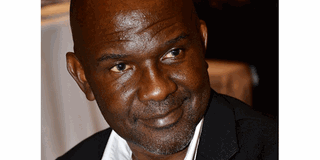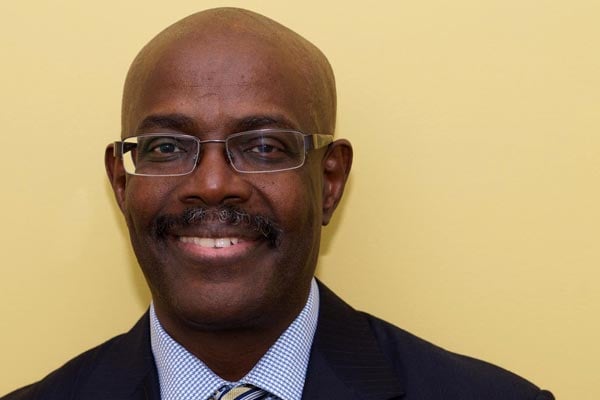Prime
Nagenda in context of our troubled history

Author: Nicholas Sengoba. PHOTO/NMG
What you need to know:
- It is very difficult to appreciate Nagenda the man and his ways if one does not have a good look at the context in which he was born and raised, right up to the time of his death
You will never understand the man that stands in front of you if you don’t know the journey that has depleted his energy. Predictably, the passing and legacy of the Senior Presidential Advisor on the Media and Public Relations, John Robin Mwesigwa Nagenda (April 25, 1938 - March 4, 2023) has elicited a plethora of debates on various fronts. There are those who think he should be seen as a loyal servant to his country and its leader for the last 37 years.
Others view him in the light of what they call an unapologetic supporter or even sycophant of President Yoweri Museveni’s NRM regime and all its excesses.It is very difficult to appreciate Nagenda the man and his ways if one does not have a good look at the context in which he was born and raised, right up to the time of his death. It is about having a good understanding of the often tumultuous history of Buganda and later Uganda that started with promise and spread out into chaos right up to the present day.
Lineage is very significant among the Baganda. Nagenda was born to parents of relatively high standing in society. An evangelist father, William Kyanjo Nagenda, was a son of a huge land owner, Festo Mukasa Manyangenda. Manyangenda was for a period a co-regent of Buganda, chosen by Kabaka Muteesa II. His mother Sala Maliamu Bakaluba, a daughter to Erasito Bakaluba, was an author. In Kiganda culture, especially in those years, these are important facts. When one was born among the privileged, propertied and landed gentry and certainly not from a peasant background, it tended to point towards an outlook of a life of opportunity, high expectation and promise.
These were the Baganda children who grew up when the entity that would eventually be called Uganda was suffering its birth pangs. They would be the representatives, the cream, the frontline, the protectors of Buganda’s interests in Uganda.
The likes of Nagenda’s definitely had hope. Acquiring an education at the school of the children of Nobles men; Kings College Budo, then Busoga College Mwiri plus Kigezi High School and later Makerere University, filled the Nagenda’s with pride and assurance for the task ahead.
Like most of the young Baganda of the times, independence was viewed as the time when they would live the best of their lives in Uganda. They would be the ones who would take over from the departing British colonialists. These natives readily took up the offer to gain skills through formal and technical education.
The standard dream was to marry a well groomed religious girl and have a family. Then serve the country in public offices while growing one’s wealth by farming the land in the provinces. There was always a demand for farm hands and these came in the form of migrant workers from all parts of the country. Many Baganda grew up on a slightly higher pedestal, superintending ‘other’ Ugandans.
Then independence happened. Buganda went into a precarious arrangement with the Kabaka Yekka (KY) party of the King allying with the UPC party of Apollo Milton Obote. The Kabaka, Sir Edward Muteesa II was President while Obote was the Prime Minister.
Before long they clashed leading to the 1966 crisis. The Kabaka’s palace (Lubiri) in Mengo was attacked and the Kakaka exiled to the UK where he died a painful death in 1969. Uganda then adopted the Republican Constitution of 1967 thus ending (or so thought Obote) the Kingdom of Buganda. To mark this momentous occasion Obote named the apex of the administrative authority of Buganda, Bulange in Mengo, the ‘Republic House.’ This eventually became the headquarters of the Ugandan Army. Meanwhile the Kabaka’s Palace from which the King had been gunned out by Obote’s sidekick Idi Amin Dada, became a Military Barracks. Baganda tried to resist, leading to the attempt on the life of Obote. Then the state of Emergency followed with military patrols, curfews, detention and extrajudicial killings by the State. This was the greatest abomination in Buganda’s history. Obote’s affront humiliated Baganda and affected them politically, economically, socially and psychologically.
To appreciate what Buganda went through one should listen to the song Balaba Taliwo by Dan Mugula (available on Youtube). He says mentioning the name of the Kabaka was like uttering a profanity. Baganda now lived on the fringes and was traumatised.
All this nightmare happened right in front of the young Baganda like Nagenda. The dream of being the next crop of top notch civil servants speaking Queen’s English was now realistically becoming just that, a dream. The vision of supervising and leading the rest of Uganda on the path of self rule suffered the same fate. All the great aspirations of economic prosperity through farming the land and tending to animals on a large commercial scale to utilize the fertile soils at the center of the world were now placed in doubt. The images of sitting around fires on the farms in the evenings sipping tea and beer with roasted goats and troupes of Kiganda dancers gracing the occasion evaporated.
The situation had changed so much. It was not safe either. The people from ethnic backgrounds in Uganda who hitherto were imported as farmhands and guards in Buganda were now calling the shots. They stood at the roadblocks and became the officers of the law whose word one took lightly at their own peril.
It was too much for a lot of Baganda to take. A number decided to lie low while some had to flee to exile to save their necks. Nagenda was one of them. In exile, fate meant that the sons of the landed gentry with property that produced great organic food, had to accept the reality of living in council flats in the UK. The dole which they could supplement with odd jobs, came in handy.
As many struggled to find their feet they could not keep the oath every Muganda makes as a sign of allegiance to the Kabaka to fend for and protect him. He died in exile in very lean times as recorded in A.B.K. Kasozi’s book The Bitter Bread of Exile. The death of the King in those circumstances and by means allegedly of foul play shattered many and rubbed salt in the wounds caused by Obote’s abomination and humiliation. It was and still is unforgivable.
For many Baganda of that generation the result was a bitterness of proportions unquantifiable. Many have passed it down to the next generations as an obligation. They perceived that Obote had begun a war of hatred that should be met by hatred in equal or greater measure. It would not just end there. Apollo Milton Obote had to first and foremost leave power by all means possible. And because Obote like all dictators painted himself as invincible, violence would be the better option.
In the minds of many Baganda and other Ugandans of that time, John Nagenda inclusive, the work was cut out.
To be continued.
Twitter: @nsengoba




